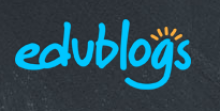How one DMCA notice took 1.5 million education blogs offline

A single DMCA notice can trigger such fear that an incredible chain reaction takes place -- which is exactly what happened when well-known textbook publisher Pearson issued a claim.

Web hosting firm ServerBeach received a Digital Millennium Copyright Act (DMCA) violation notice from the publisher, directed at Edublogs, which hosts 1,451,943 million education-based blogs created by teachers and students alike. The notice stated that on a single page dating back to 2007, a posted questionnaire allegedly infringed Pearson's copyright.
The questionnaire was Beck’s Hopelessness Scale, a 20 question list, totaling less than 300 words which was published in 1974. According to Edublogs, Pearson wanted $120 to license the work.
Edublogs says that after being made aware of the notice, the infringing page was taken down. However, this was only the beginning.
ServerBeach took all of Edublog's servers offline last week, which temporarily killed every blog hosted with them. This was later confirmed by the server company, who said the outage lasted roughly an hour.
Naturally, Edublogs took offence to this. James Farmer, one of the guys behind WPMU.dev and Edublog gave his account, explaining the copyright-complaint system already in place:
"Like most blogging services, we've been heavily attacked pretty much since our inception by Sploggers (people, or machines, creating blogs to add links to other sites or promote their own badness) -- so much so that we even developed and maintain the only dedicated Anti Splog service out there. And, of course, sploggers don’t care much for copyright (neither do a lot of students, but that's another story), and thus we invariably get a bunch of emails every day complaining about copyright issues, here's how we handle them:
- Look at the complaint, is it a splog we haven't caught yet, if so kill the splog
- If it's a genuine student or teacher blog evaluate whether the claim is legit or not
- If it's legit then ask the user to remove the comment, if not then let the user know about the complaint and also that we have rejected it
So, when we got a DMCA notice from our hosts, we assumed it was probably a splog, but it turned out it wasn't, rather just a blog from back in 2007 with a teacher sharing some materials with their students, see below:"
After looking at the site in question and realizing it hadn't been used in five years -- let alone the fact that the company "figured that whether or not we liked it Pearson were probably correct about it", the organization '"splogged" the site and informed ServerBeach. According to Edublogs, this wasn't enough -- based on the fact that it was still in their Varnish cache, which isn't open to the public.
When you're paying $75,000 a year, you'd think an entire ecosystem would be safe against being taken down -- however temporarily -- because of one DMCA complaint issued less than 12 hours beforehand. However, if millions of blogs can be taken down on such a whim because of DMCA branding, the question arises: Just how far can copyright holders go to abuse not only the system but common sense, to the detriment of the general public?
The view from ServerBeach, however, is different. In an emailed statement, the firm said that Edublogs acknowledged and accepted the first notice, issued on September 26th. In addition:
"ServerBeach received the second notice for the same alleged infringing content on October 8th, 2012 which was not resolved/responded to, so a second notification e-mail was sent October 9th, 2012 which was also not responded to by the customer."
Whatever the truth, the question asked by Farmer still remains -- why not pick up the phone instead of taking down over a million educational blogs?